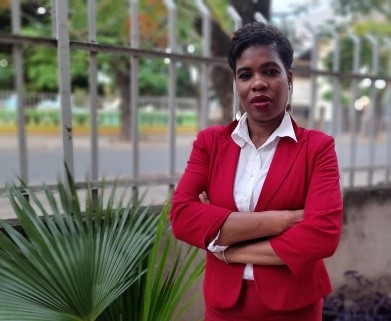Assessing the health of the private sector in Mozambique: Key findings from the IGM Annual Conference 2022
Since 2016, the private sector in Mozambique has faced several external shocks, including terrorism in Cabo Delgado, Cyclones Idai and Kenneth, the COVID-19 pandemic, and the Ukrainian conflict and its impact on commodity prices and inflation. What is the state of the Mozambican private sector today? What are the main constraints faced by local companies, and how do they manage these external shocks? These were some of the issues discussed at the annual conference of the Inclusive growth in Mozambique (IGM) programme.
The research presented during the conference shows declines in both company performance and the environment in which they operate in Mozambique. External factors have had a particularly devastating effect in this sense.
So, is there hope? In my view, yes.
The Mozambican government has launched several measures to support the private sector in the short, medium, and long term. Well implemented and with the necessary resources, these measures can produce some of the results the country strives for.
The challenges faced by the private sector in Mozambique
The private sector plays an important role in the structural transformation of the Mozambican economy and in the country’s general economic growth and development. It is, after all, the private sector that provides significant investments in the different economic areas of the country, generating many jobs and important income for families.
The research, including the preliminary results of the Survey of Mozambican Manufacturing Firms 2022 (IIM 2022), indicates that the growth of the business sector is also seriously hampered by administrative barriers and weak public infrastructure, which, in turn, result in weak cross-sectoral linkages. An additional challenge is the lack of access to finance due to constraints imposed by banks. The lack of alternative sources in strategic sectors exacerbates this barrier.
Furthermore, the business sector in Mozambique has weaknesses in the areas of knowledge, training, and experience. One of the reasons for this —according to several conference participants— is the fact that the private sector in Mozambique is still emerging. 10 years ago, the entrepreneurial culture in the formal sector was still in its infancy and many local companies have only been operating for a short time.
The role of the government
As noted in the conference’s panel discussion on how to trigger positive and lasting change in the private sector, the Mozambican government recognizes both the challenges and its own role in mitigating adverse shocks to the economy. The panelists —policymakers and representatives of the local private sector and academia— discussed the state’s response to the concerns of Mozambican companies, represented by the recent adoption of 20 policy measures aimed at improving the business environment.
According to João Macaringue of the Ministry of Economy and Finance, this Package of Economic Acceleration Measures (Pacote de Medidas de Aceleração Económica, or PAE) aims to promote investment, improve the business environment and good governance, and encourage structural projects to support the development of the economy.
In this context, Eduardo Sengo from the Confederation of Economic Associations of Mozambique (Confederação das Associações Económicas de Moçambique, CTA) highlighted the importance of continuous dialogue between stakeholders to ensure a smooth implementation of the PAE.
The panel was unanimous in emphasizing that small and micro companies face different challenges than large companies. It will therefore be necessary to adopt measures in line with the demands of each type of company. The importance of discussing strategic issues in a pragmatic and in-depth manner before implementation was also mentioned. An example raised during the debate is the procurement process: the State being the biggest buyer in the country, how can one create opportunities to increase the acquisition of products from national companies?
What are the prospects for the private sector in Mozambique?
In my opinion, one of the most stimulating moments of the IGM Annual Conference 2022 was a debate on future perspectives. According to panelists and participants, it is important to ensure the successful implementation of the PAE. It is equally important to identify priority products for export and to develop the local business community based on these priorities with differentiated requirements for SMEs and through tax benefits.
According to Prof. Ibraimo Mussagy from the Catholic University of Mozambique, the country has great potential for growth in agribusiness and manufacturing. But how can it take advantage of this potential? The country has several universities that can offer technical courses focused on know-how to boost the private sector. However, for these institutions to be able to understand what the market needs, there is a need to strengthen relations with the local private sector.
There are therefore many solutions —and hope— for the private sector in Mozambique, we just need to leverage them. This includes correcting existing market failures in order to increase domestic production and feed the national industry. This is no small challenge, as to achieve these ambitious goals, everyone's contribution is needed: that of the government, the private sector, academia, and of our partners.
Josenilde Mário Janguia is a researcher and Assistant Professor and Head of the Department of Academic Management at the Faculty of Economics, Eduardo Mondlane University. She holds a PhD in Strategic Administration from the Pontifical Catholic University of Paraná, Brazil, and a master’s degree in Economics, Management, and Administration.
The views expressed in this piece are those of the author(s), and do not necessarily reflect the views of the IGM programme partners or donors.


